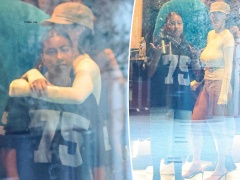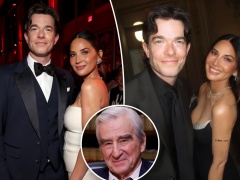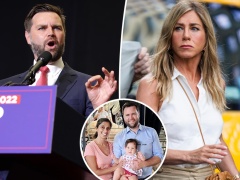
Carlos Santana has forgiven the man who sexually abused him as a young child.
Reflecting on the childhood trauma, the Mexican-American rocker shared how his journey to finding peace and acceptance has been “really spiritual.”
“I learned to look at everyone who ever went out of their way to hurt me, demean me or make me feel like less, like they’re 5 or 6 years old, and I’m able to look at them with understanding and compassion,” he told People in an interview published Thursday.
“For example, this person who abused me sexually, instead of sending him to hell forever, I visualized him like a child, and behind him there was a lot of light,” he added.
“So I can send him to the light or send him to hell knowing that if I send him to hell, I’m going to go with him. But if I send him to the light, then I’m going to go with him also.”


Santana, 75, added that shifting his perspective led him on the path to forgiving his abuser.
“There’s this saying, ‘Hurt people hurt people.’ It’s my pain. It did happen to me. But if you open your hands, and you let it go, then you don’t feel that anymore,” he said.
Santana’s revelation comes days before the Tribeca Film Festival premiere of his new documentary, “Carlos,” which will provide more insight into his life and iconic music career.


The legendary guitarist spoke about his childhood abuse for the first time in a 2000 interview.
He told Rolling Stone he was abused “almost every day” between the ages of 10 and 12 by an American man who would cross the border and bring him gifts. It eventually ended when Santana fell in love with a girl and his abuser got jealous.
“I looked at him for the first time for who he was: a very sick person,” he said at the time.
“You want to get angry with yourself for not knowing better. The mind has a very insidious way of making you feel guilty: You’re the guilty party, shame on you, you’re the one who brought this on yourself.”

Santana later told the Guardian in 2014 that his abuser was a tourist who had became friends with his parents.
He recalled how his mother confronted him about the abuse in front of siblings, which he said weighed on him for years.
“I was the victim, but they were hearing that I made it happen,” he said. “That stayed on my mind for a long, long time – that she didn’t have the compassion to say, ‘I feel so bad that I didn’t read the signs.'”






